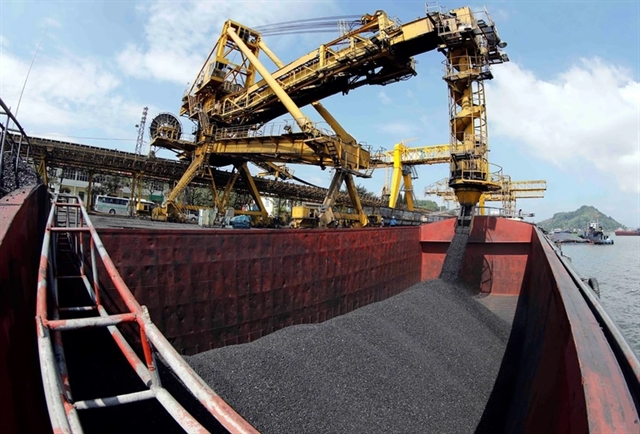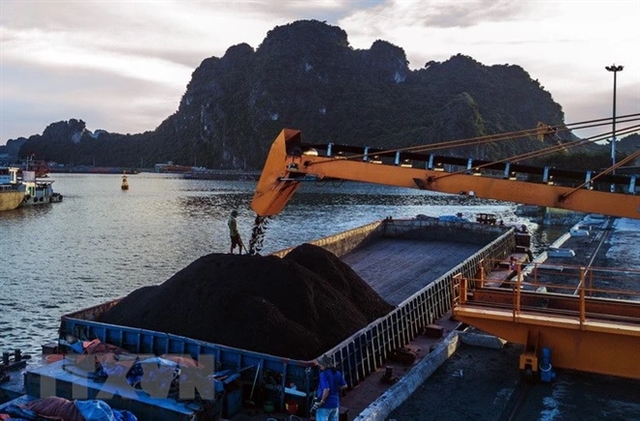 Economy
Economy

 |
| Coal transportation by sea in Quảng Ninh Provincr. — VNA/VNS photo |
HÀ NỘI — Việt Nam's coal exports hit a record in April with 109,219 tonnes worth US$29.4 million, a more than hundred-fold increase in both volume and in value compared to the previous month, according to data from the General Department of Vietnam Customs.
Over the first four months of the year, coal exports reached 112,112 tonnes, worth nearly $30.3 million, up over 30 times in volume and nearly 23 per cent in value over the same period in 2023. The average export price reached $270 per tonne, down 24.3 per cent from the same period last year.
Many countries have been increasing coal imports due to the increasing demand particularly for thermal power, while hydropower is facing difficulties. This is attributed to the influence of the El Niño phenomenon, which has caused record-high temperatures.
Japan remained the largest importer of Vietnamese coal in the first four months of the year with 53,404 tonnes worth $12.43 million, a sharp increase of 146 times in volume and 96 times in value over the same period last year. Japan's imports accounted for 47.6 per cent in volume and 41.1 per cent in turnover of Việt Nam's total exports.
The Netherlands, South Africa, Thailand, the Philippines and Malaysia are also major import markets for Việt Nam's coal.
Việt Nam is one of the five largest coal-consuming economies in Southeast Asia. According to the General Department of Vietnam Customs, the country has coal reserves of approximately 50 billion tonnes.
Quảng Ninh is the most important coal mine in Việt Nam; it was first worked in 1839 and has reserves of up to 8.7 billion tonnes. With a convenient location near the sea for transportation to the international market, it has become the leading coal mining area in the country.
According to the Ministry of Industry and Trade, the coal market is expected to increase from now until 2030, reaching 43-47 million tonnes of commercial coal per year. After that, it is projected to gradually decrease between 2035 and 2045.
Demand for coal is expected to peak at around 94-127 million tonnes per year during 2030-35, mainly due to rising demand for power generation and economic sectors such as cement, metallurgy and chemicals. It will then gradually decrease to 73-76 million tonnes per year by 2045.
Domestically produced commercial coal will be around 45-47 million tonnes per year in the period of 2025-35 and gradually decrease to 42-44 million tonnes per year by 2045. To match demand, Việt Nam is expected to import about 50-83 million tonnes during 2025-35, gradually falling to about 32-35 million tonnes in 2045. — VNS




